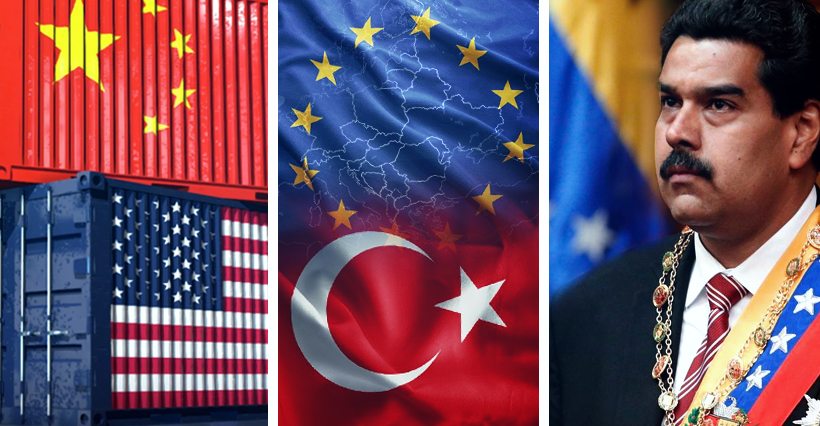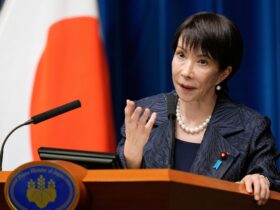The intensification of the US-China trade war
Talks between the US and China, held during the week of the 20th-26th of August didn’t lead to any productive results: new tariffs to the tune of $200 billion were imposed by the US. The Chinese government interprets the US’s politico-economical course as a consciousness attempt to weaken the Chinese state. China and US have engaged in a protracted struggle for the position of the world’s dominant economy (the GDP of US in the second quarter of 2018 increased up by 4,1% – at the same time the GDP growth rate in China in the second quarter of 2018 was 6,7%). Trump’s politics are also motivated by the upcoming elections: this strict policy towards competitors is a part of the realist political agenda, which Trump declared he would follow during the electoral period.
The EU takes a stand against the US’s anti-Turkish policies
After imposing sanctions on 2 turkish ministers and increasing the tariffs on steel and aluminium , the EU declared it would not support Trump’s actions against Turkey. At an upcoming meeting on the 31st of August, EU foreign ministers in Vienna will express the position of EU leadership in regard to Turkey. The EU has started to follow its own geopolitical logic which doesn’t necessarily correspond to American interests as it has in the past. Read more about the forecasts for Turkish-European collaboration in our new analysis.
Venezuela: an economic reformation with global consequences
The Venezuelan authorities have launched a large-scale monetary reform – five zeros are to be removed from the national currency at once, and a new sovereign currency will be created in place of the traditional bolivar. The government believes that this will help the economy cope with massive hyperinflation, and will help the citizens to purchase essential goods. Read our full analysis of the monetary revolution in Venezuela.

















Leave a Reply